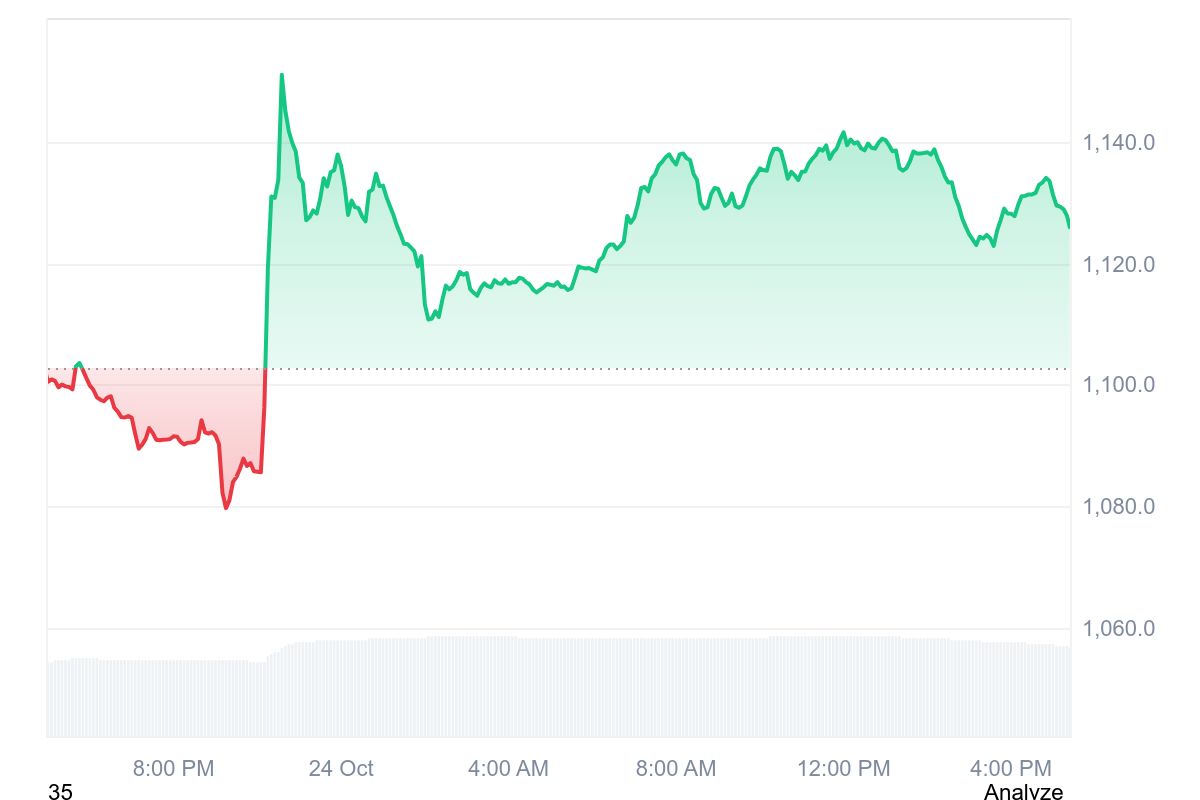Trump Pardons Changpeng Zhao (CZ), Calling an End to “War on Crypto”
In a dramatic twist to the ongoing saga of cryptocurrency regulation in the United States, President Donald Trump issued a full presidential pardon on October 23, 2025, to Changpeng Zhao (commonly known as CZ), the founder of Binance. The pardon wipes clean Zhao’s 2023 criminal conviction for failing to maintain adequate anti-money-laundering (AML) controls at his exchange — a charge to which he pleaded guilty and for which he served a four-month federal prison sentence. The Trump administration called the move a decisive end to what it described as the “war on crypto” pursued by the Biden-era Justice Department.
The decision is the latest in a series of pro-crypto actions by the Trump White House. Since returning to office, Trump has positioned himself as a champion of digital asset innovation, rolling back regulations, softening enforcement policies, and signing legislation supportive of stablecoins and Web3 development. While many in the crypto community welcomed the pardon as a signal that the U.S. is ready to re-embrace blockchain entrepreneurship, the move also drew fierce criticism from lawmakers who accused Trump of political favoritism and undermining financial accountability.
How It Started: The Case Against Changpeng Zhao
Changpeng Zhao’s legal challenges began under the Biden administration’s heightened scrutiny of cryptocurrency platforms. In November 2023, Zhao pleaded guilty to violating the Bank Secrecy Act by failing to implement effective anti-money-laundering (AML) measures at Binance, the world’s largest crypto exchange by volume. The U.S. government alleged that Binance’s compliance lapses enabled illicit actors — including hackers, fraudsters, and sanctioned groups — to launder billions through the platform undetected.
As part of a sweeping settlement, Binance agreed to pay a staggering $4.3 billion in fines — one of the largest penalties ever imposed on a financial company. Zhao stepped down as CEO and was sentenced to four months in federal prison, which he completed in 2024. Treasury Secretary Janet Yellen at the time described Binance’s conduct as a “willful failure” that “allowed money to flow to terrorists, cybercriminals, and child abusers.” The case was considered a landmark in crypto enforcement and symbolized the Biden administration’s tough regulatory posture toward the industry.
Trump Ends the “War on Crypto” with a Presidential Pardon
On October 23, 2025, President Donald Trump issued a full and unconditional pardon to Changpeng Zhao, wiping away his criminal conviction and signaling a sharp turn in the federal government’s approach to cryptocurrency. The White House described the move as a correction to what it called the prior administration’s overly aggressive stance — referring specifically to the prosecution of Zhao as part of a broader “war on crypto.”
Karoline Leavitt, Trump’s press secretary, stated that the president acted to undo “politically motivated enforcement” carried out by the Biden-era Justice Department. She emphasized that Zhao had not been accused of fraud or causing direct harm to victims, and called the case “a symbol of regulatory overreach against crypto innovation.” The pardon fits squarely within Trump’s broader strategy of aligning himself with the digital asset sector: since taking office, he has consistently positioned himself as crypto-friendly, even going so far as to campaign on becoming “the crypto president.”
Trump’s administration has already enacted several pro-crypto measures, including dismantling certain enforcement units and signing legislation to regulate stablecoins through the new Genius Act. These moves represent a complete reversal of the Biden administration’s enforcement-heavy approach and suggest a more open environment for blockchain entrepreneurs and investors. With the pardon of CZ, Trump is effectively sending a message to the crypto world: under his leadership, the U.S. is open for crypto business.
Market Impact: Crypto Prices Rally

BNB Price Today
Source: CoinMarketCap
The crypto markets responded swiftly and positively to news of CZ’s pardon — a move widely interpreted as a signal of regulatory relief. Binance’s native token, BNB, jumped over 5% in the hours following the announcement, peaking around $1,151. Investors viewed the decision as a key de-risking event for Binance’s operations and reputation, especially in the U.S. market.
Bitcoin (BTC) and Ether (ETH) also posted modest gains of around 3–4%, reflecting a broader sentiment shift. The market interpreted Trump’s clemency not just as a personal reprieve for CZ, but as an indication of a new pro-business era for crypto in the United States. “I think it makes sense — a bit of a relief rally on the back of this news,” said Jaime Baeza, managing partner at crypto hedge fund ANB Investments, referencing the BNB price spike.
The price reaction wasn’t only technical — it was symbolic. Traders perceived the pardon as removing a lingering cloud over Binance and potentially opening the door for its re-expansion in the U.S. Others noted that Trump’s support for CZ underscored a friendlier regulatory environment overall, which could attract more institutional capital into crypto markets.
Crypto Accountability or Political Favoritism?
While the crypto industry largely welcomed CZ’s pardon, the political fallout was immediate — and fierce. Prominent Democrats, including Senator Elizabeth Warren, condemned the move as a troubling example of political favoritism. “This is an example of political corruption that puts crypto insiders ahead of accountability,” Warren stated, citing Zhao’s guilty plea and Binance’s $4.3 billion settlement as clear evidence that serious financial misconduct had occurred.
Representative Maxine Waters was equally direct, arguing that the pardon “reflects a presidency defined by self-interest and loyalty to industry actors over everyday Americans.” Critics highlighted the financial links between Binance and Trump-affiliated crypto businesses. In particular, reports surfaced that Binance helped develop a stablecoin for World Liberty Financial, a company tied to the Trump family, as part of a $2 billion crypto initiative. These revelations have raised red flags about potential conflicts of interest behind the decision.
Ethics experts and political analysts warn that the pardon may set a troubling precedent — not just in how crypto enforcement is handled, but in how political influence may intersect with financial regulation. While Trump’s allies defend the move as a course correction after what they see as unfair targeting of the crypto industry, opponents see it as a step backward for transparency and accountability in fintech oversight.
A Win for Web3? The Crypto World Reacts to Trump’s Pardon
In stark contrast to the political uproar, the crypto community responded to CZ’s pardon with applause and optimism. Changpeng Zhao himself expressed public gratitude, posting on X (formerly Twitter) that he was “deeply grateful” for President Trump’s decision and pledged to help make the United States “the Capital of Crypto” while advancing Web3 innovation worldwide.
Industry leaders and influencers echoed that sentiment. Cardano founder Charles Hoskinson described the original prosecution as part of a broader “weaponization of the justice department against our industry.” Bitcoin advocate Anthony Pompliano called the pardon “great news,” stressing that “there is no place for political targeting in the U.S. justice system.” Many investors viewed the decision not only as a personal win for CZ, but as a bullish signal for crypto’s future in America.
Still, not everyone in the community was fully celebratory. Some voices urged caution, warning that while the pardon may remove legal barriers, it also raises questions about accountability and fairness. Others pointed out that the industry’s long-term credibility still hinges on transparent compliance and strong governance. Even so, the overall reaction leaned clearly positive, with many seeing the move as a turning point in the U.S. government’s posture toward crypto entrepreneurs.
What’s Next for Crypto Under Trump?
With CZ’s legal slate wiped clean and Trump signaling a crypto-friendly agenda, the digital asset industry may be entering a new chapter — one shaped by looser regulations, investor enthusiasm, and fresh political momentum. Already, Binance is rumored to be re-evaluating its U.S. strategy, and Zhao has hinted at playing a more public role in global crypto development under Trump’s pro-innovation policies.
Looking ahead, several key developments could shape the industry’s trajectory:
-
Regulatory Reset: With the SEC and DOJ under new leadership, ongoing investigations into crypto firms may be dropped or softened. Trump’s administration has already begun scaling back enforcement infrastructure — a move interpreted by many as an invitation for exchanges and startups to re-engage with the U.S. market.
-
Policy Tailwinds: The recently passed Genius Act, which lays the foundation for regulated stablecoins, could mark the beginning of broader pro-crypto legislation. Market participants are watching for potential tax clarifications, licensing reforms, and incentives for blockchain innovation.
-
Continued Division in Washington: The political divide is far from over. While Trump’s circle embraces crypto as a frontier of economic growth and innovation, opponents in Congress are pushing back with calls for stricter oversight and accountability. This tension could shape future elections and legislative battles.
-
Leadership Signals: Zhao’s pardon may embolden other crypto leaders facing legal scrutiny to seek rehabilitation or even return to leadership roles. Whether this encourages long-term industry trust or fuels concerns about regulatory capture remains to be seen.
For now, Trump’s message is clear: crypto has a seat at the table again. Whether that leads to a more dynamic and compliant digital economy — or new rounds of controversy — will depend on how the industry and regulators navigate the road ahead.
Conclusion
Donald Trump’s pardon of Changpeng Zhao marks more than just the exoneration of one of crypto’s most recognizable figures — it symbolizes a broader realignment in how the United States views digital assets. From intense scrutiny and billion-dollar penalties to open advocacy and regulatory relief, the shift is both dramatic and consequential. For crypto investors, it signals a potential revival of U.S. crypto innovation under an administration eager to embrace Web3 as part of the nation’s economic future.
Yet this moment is not without complexity. While the markets may cheer and the community may celebrate, questions about accountability, political influence, and long-term policy integrity linger. The coming months will reveal whether this shift ushers in a sustainable new era for crypto — or simply trades one set of risks for another. Either way, CZ’s pardon has changed the game, and the crypto world will be watching what comes next.
Disclaimer: The opinions expressed in this article are for informational purposes only. This article does not constitute an endorsement of any of the products and services discussed or investment, financial, or trading advice. Qualified professionals should be consulted prior to making financial decisions.



